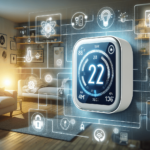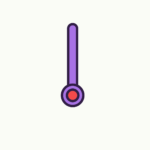Smart home devices have revolutionized the way we live, offering convenience and seamless connectivity at our fingertips. However, with these advancements come legitimate privacy concerns that need to be addressed. From voice-controlled virtual assistants to security cameras that monitor every corner of our homes, the infiltration of smart technology raises questions about the protection and security of our personal data. In this article, we will explore the privacy concerns associated with smart home devices and provide valuable insights into how you can safeguard your privacy in this increasingly connected world.

1. Privacy concerns with data collection
When it comes to smart home devices, one of the biggest privacy concerns is the collection of personal data. These devices often collect various types of data, ranging from basic information like your name and address to more sensitive data such as your daily routines and preferences. This can include data from voice commands given to voice assistants, video footage from smart cameras, and even information from smart appliances and IoT devices.
1.1. Types of data collected
Smart home devices have the capability to collect a vast amount of data about you and your everyday activities. This data can include your location, internet browsing history, smart device usage patterns, energy consumption patterns, and even biometric data such as your voice or facial recognition. The collection of this data allows smart home devices to provide personalized experiences and perform functions tailored to your preferences, but it also raises concerns about the potential misuse or unauthorized access to this sensitive information.
1.2. Lack of consent and control
One significant concern with data collection by smart home devices is the lack of consent and control that users have over their own data. Many users are not fully aware of the extent to which their data is being collected and how it is being used. Consent processes are often buried in lengthy terms and conditions that users may not thoroughly read or understand. As a result, users may unintentionally provide consent for their personal data to be collected and used in ways they did not anticipate or agree to.
Furthermore, even if users are aware of the data collection, they often have limited control over what data is being collected and how it is used. Smart home devices may not provide clear options for users to opt out of certain data collection practices or to delete their data. This lack of control can make users feel uneasy about the privacy of their personal information.
1.3. Third-party access to data
Another significant privacy concern with data collection by smart home devices is the potential for third-party access to this data. Smart home devices often rely on cloud services and third-party platforms to store and process the data they collect. This means that your personal information may be accessible not just to the device manufacturer, but also to other service providers and potentially even advertisers and marketers.
The concern here is that these third parties may have different privacy practices and may not have the same level of security measures in place to protect your data. There is also the risk of data breaches or hacks, which could expose your personal information to malicious actors. This lack of control over who has access to your data can be a significant source of concern for many users.
2. Privacy concerns with data storage and security
In addition to the collection of personal data, the storage and security of that data are also significant privacy concerns with smart home devices. The vulnerabilities associated with data storage and security can expose users to various risks, including hacking, breaches, and potential misuse of their data.
2.1. Vulnerability to hacking and breaches
Smart home devices are not immune to cyber attacks. In fact, they can be attractive targets for hackers due to the wealth of personal information they store. If a hacker gains access to your smart home device, they may be able to gather sensitive information or even gain control over your device, potentially compromising your privacy and security.
Furthermore, if the cloud services or third-party platforms that store your data are not adequately protected, they can become targets for hacking as well. A data breach in these systems could result in the exposure of your personal information to unauthorized individuals, which can have significant consequences for your privacy and potentially lead to identity theft.
2.2. Inadequate security measures
Another concern is the adequacy of security measures implemented by smart home device manufacturers. Some devices may not have robust security features or may rely on outdated encryption methods, making them more susceptible to attacks. Additionally, as smart home devices often connect to a shared home network, a compromised device can potentially act as a gateway for hackers to infiltrate other devices on the network, further compromising the privacy and security of your personal information.
2.3. Potential misuse of data
The storage of personal data by smart home devices also raises concerns about the potential misuse of this data. There have been cases where companies have been caught using personal data gathered through smart devices for purposes other than what users initially intended or agreed to. This can include selling user data to advertisers or sharing it with third parties without user consent.
The misuse of personal data not only undermines user trust but also raises significant privacy concerns. Users expect their personal information to be handled responsibly and used only for the purposes they have authorized. When this trust is violated, it leads to a breach of privacy and can erode confidence in smart home devices as a whole.
3. Privacy concerns with data sharing and selling
In addition to the collection and storage of personal data, the sharing and selling of that data by smart home device manufacturers and service providers are also significant privacy concerns. This can involve sharing data with service providers, sharing data with advertisers and marketers, and even third-party sales and data monetization.
3.1. Sharing data with service providers
Smart home devices often rely on cloud services and other external service providers to store and process the data they collect. While this allows for seamless integration and enhanced functionality, it also means that your personal data may be accessible to these service providers. The concern here is that these service providers may have different privacy practices and may share or use your data in ways that you may not be comfortable with or expect.
3.2. Data sharing with advertisers and marketers
Another concern is the potential sharing of personal data with advertisers and marketers. With the amount of data collected by smart home devices, advertisers and marketers may be interested in accessing this information to target you with personalized advertisements. This raises concerns about potential privacy invasions and the unwanted use of personal data for commercial purposes.
While some users may not mind receiving targeted advertisements, others may find it intrusive and a violation of their privacy. The key issue here is the lack of transparency and control in terms of how and when personal data is shared with advertisers and marketers.
3.3. Third-party sales and data monetization
A further concern is the possibility of third-party sales and data monetization. In some cases, smart home device manufacturers may sell the data they collect to third parties, either for financial gain or to enhance their business models. This can include selling aggregated data to researchers, advertisers, or other companies interested in analyzing consumer behavior.
The problem with this practice is that users may not be aware that their data is being sold or may not have given explicit consent for their data to be used in this manner. It raises questions about ownership and control of personal data and whether users have a say in how their data is used and shared.
4. Privacy concerns with voice assistants
Voice assistants are an increasingly popular feature of smart home devices, but they also raise significant privacy concerns. Some of the main concerns include voice recordings and their storage, accidental activation and eavesdropping, and inadequate privacy controls.
4.1. Voice recordings and their storage
Voice assistants, such as Amazon’s Alexa or Google Assistant, rely on voice recordings to understand and respond to user commands. While this feature can offer convenience and hands-free control, it also means that your voice is being recorded and stored on servers.
The concern here is that these voice recordings can potentially be accessed or even leaked. In some cases, voice recordings have been accidentally sent to contacts or have been accessed by unauthorized individuals. This raises questions about the security and privacy of voice recordings and whether users have control over the storage and deletion of their own voice data.
4.2. Accidental activation and eavesdropping
Another concern with voice assistants is the potential for accidental activation and eavesdropping. Voice assistants are designed to respond to specific wake words or phrases, but there have been instances where they have been falsely activated by similar-sounding words or phrases from background conversations or media. This means that your voice assistant might inadvertently record and process conversations that were not intended to be heard or analyzed.
This accidental activation raises concerns about the extent to which our private conversations are being recorded and potentially monitored. It also highlights issues around trust and the need for stricter controls to prevent accidental eavesdropping.
4.3. Inadequate privacy controls
Some users have expressed concerns about the lack of robust privacy controls for voice assistants. While most devices offer the option to delete voice recordings, it is not always clear how long these recordings are stored, who has access to them, and how they can be permanently removed from servers.
Users should have clearer and more accessible privacy controls to manage their voice data, including the ability to review and delete all voice recordings associated with their account. Greater transparency in how voice data is handled and the implementation of stronger security measures will help alleviate privacy concerns with voice assistants.

5. Privacy concerns with smart cameras and doorbells
Smart cameras and doorbells are designed to enhance home security and provide peace of mind, but they also give rise to privacy concerns. These devices can capture video footage, and the issues related to privacy include video surveillance and data retention, unauthorized access and sharing of footage, and facial recognition and invasion of privacy.
5.1. Video surveillance and data retention
One of the primary concerns with smart cameras and doorbells is the level of video surveillance they enable. While this can be beneficial in terms of deterring intruders and recording incidents, the constant monitoring of your home and surrounding areas raises concerns about privacy and surveillance.
Users may feel uneasy about being constantly under surveillance, especially if they are not aware of the extent to which their video footage is being stored and for how long. The security of video recordings and the potential for unauthorized access further compound these concerns.
5.2. Unauthorized access and sharing of footage
Another significant concern is the potential for unauthorized access to the video footage captured by smart cameras and doorbells. If these devices are not adequately protected or if there are vulnerabilities in the associated apps or cloud services, hackers may be able to gain access to the video feed and potentially view or even share the footage without your knowledge or consent.
This unauthorized access not only violates your privacy but can also have serious implications for your security if criminals are able to identify when your home is unoccupied or gain insight into your daily routines.
5.3. Facial recognition and invasion of privacy
The use of facial recognition technology in smart cameras and doorbells raises additional privacy concerns. These technologies have the potential to identify individuals based on their facial features and link that information to personal profiles or databases.
While facial recognition can be useful for verifying authorized users or identifying potential threats, it also raises concerns about invasion of privacy. Users may worry that their images are being captured and stored without their consent, or that their movements and activities are being tracked and analyzed without their knowledge.
To address these concerns, robust privacy controls should be implemented to ensure that users have control over when and how their video footage is accessed and shared. Clear guidelines and regulations around the use of facial recognition technology can also help safeguard user privacy while making use of these powerful features.
6. Privacy concerns with smart home hubs and devices
Smart home hubs and devices act as central points of control and coordination for various smart devices in your home. While they offer convenience and integration, there are privacy concerns associated with device tracking and monitoring, lack of transparency in data collection, and integration with other devices and platforms.
6.1. Device tracking and monitoring
Smart home hubs and devices have the capability to track and monitor your device usage within your home. This can include information such as which devices are connected, how often they are used, and even details about your device interactions.
While this tracking can offer valuable insights and automation features, users may feel uneasy about continuously being monitored within their own homes. The concern is not just about the collection of this data but also how it is being used and whether users have control over what information is being tracked and monitored.
6.2. Lack of transparency in data collection
Another privacy concern with smart home hubs and devices is the lack of transparency in data collection practices. Users may not always be aware of the types of data being collected, the extent to which it is being gathered, and how it is being used.
Companies should provide clear and comprehensive information about the data being collected, including the purpose and duration of data retention. Users should have the ability to review and delete their data if desired, as well as the option to opt out of certain data collection practices.
6.3. Integration with other devices and platforms
One of the significant benefits of a smart home is the integration between different devices and platforms. However, this integration can also present privacy concerns. When smart home hubs and devices connect to external platforms or services, they may share data or interact with other devices without the user’s explicit consent or awareness.
This lack of control over data sharing and integration can lead to unintended consequences, such as information being shared with incompatible platforms or devices that have different privacy practices. Users should have more control over which devices and platforms are allowed to interact with their smart home systems, and clear consent should be obtained before sharing any sensitive or personal data.

7. Privacy concerns with smart appliances and IoT devices
Smart appliances and IoT devices in your home, such as smart refrigerators or fitness trackers, offer convenience and automation but also raise privacy concerns. These concerns can include sharing usage patterns and behavioral data, device vulnerabilities and botnets, and the potential for identity theft and fraud.
7.1. Sharing usage patterns and behavioral data
Smart appliances and IoT devices often have the capability to collect data about your usage patterns and behaviors. For example, a smart refrigerator may track the items you store and consume, while a fitness tracker may monitor your exercise habits and sleep patterns.
While the collection of this data can enable personalized experiences and insights, users may question the necessity of sharing this information. They may be concerned that their everyday activities and habits are being recorded and analyzed, potentially without their explicit consent or understanding of how this data is being utilized.
7.2. Device vulnerabilities and botnets
Another significant concern is the potential vulnerabilities of smart appliances and IoT devices to cyber attacks. These devices often have limited security measures or rely on outdated software that may not receive regular updates or patches. This makes them susceptible to being compromised and used as part of botnets or networks of hacked devices.
Botnets can be used for various illicit activities, including launching distributed denial-of-service (DDoS) attacks or mining cryptocurrencies. The risks associated with botnets go beyond privacy concerns and can impact the overall security and functionality of your smart home network.
7.3. Potential for identity theft and fraud
The collection of personal data by smart appliances and IoT devices also raises concerns about the potential for identity theft and fraud. If these devices are hacked or if there are vulnerabilities in the systems they connect to, personal information such as names, addresses, or even financial details may be exposed.
This information can then be used by malicious actors for identity theft, fraud, or other nefarious purposes. Users should ensure that smart appliances and IoT devices have adequate security measures in place, including strong passwords and encryption, to mitigate these risks.
8. Privacy concerns with geolocation and smart locks
Geolocation services and smart locks are features that are often integrated into smart home systems, providing convenience and security. However, they also raise privacy concerns such as location tracking and user profiling, vulnerability to hacking and physical threats, and unauthorized access and control.
8.1. Location tracking and user profiling
Smart home systems can utilize geolocation services to track your location and create user profiles based on your movements and preferences. This can enable features like automatic adjustment of temperature or lighting when you are near or away from home.
While this functionality can be useful, users may be concerned about the extent to which their location is being tracked and how this data is being used. There is also the potential for this information to be shared with third parties without the user’s explicit consent, leading to concerns about user profiling and targeted advertising.
8.2. Vulnerability to hacking and physical threats
Smart locks, which allow you to remotely control access to your home, raise concerns about the security of these devices. If a smart lock is vulnerable to hacking or manipulation, unauthorized individuals may be able to gain access to your home or compromise the security of your property.
The physical threats associated with these vulnerabilities are particularly worrisome, as they have direct implications for the safety and privacy of individuals and their homes. Users should ensure that smart locks are equipped with strong encryption, multi-factor authentication, and regular security updates to prevent unauthorized access.
8.3. Unauthorized access and control
A significant concern with geolocation services and smart locks is the potential for unauthorized access and control over your smart home system. If an attacker gains access to your account or the associated apps, they may be able to track your location, control your devices, or even disable security features.
Users should take precautions to protect their accounts and smart home systems, such as using strong passwords and enabling two-factor authentication. Regularly reviewing access permissions and monitoring for any unauthorized access attempts is also crucial to maintain the privacy and security of your smart home.

9. Privacy concerns with smart thermostats and energy management
Smart thermostats and energy management systems provide energy-saving benefits and increased control over home temperature and energy usage. However, they also raise concerns about the collection of consumption data and user behavior, linkage to personal identities and profiles, and the potential for targeted advertising.
9.1. Consumption data and user behavior
Smart thermostats and energy management systems collect data about your energy consumption patterns, including information such as temperature settings, time of use, and energy usage patterns. This data enables these systems to optimize energy usage and provide insights into saving opportunities.
However, users may have concerns about the extent of data collection and whether they have control over when and how this data is being used. The ability to monitor personal energy usage patterns and behaviors can be revealing and potentially invasive.
9.2. Linkage to personal identities and profiles
The collection of energy consumption data can also lead to the linkage of this information to personal identities and profiles. This means that your energy usage patterns and behaviors may be associated with you as an individual, potentially allowing for targeted advertising or profiling based on your energy consumption habits.
While some users may not mind this level of personalization, others may view it as an intrusion into their privacy. Users should have the ability to control the linkage of their energy consumption data to personal identities and profiles, along with clear information about how this data is used and shared.
9.3. Potential for targeted advertising
A significant concern with the collection of energy consumption data is the potential for targeted advertising. Advertisers may be interested in using this information to provide more personalized and relevant advertisements based on your energy usage and preferences.
While targeted advertising can be effective when done ethically and with user consent, users should have the ability to opt out of this level of personalization if they so choose. Clear consent processes and transparency in how energy consumption data is used for advertising purposes are essential to address these concerns.
10. Privacy concerns with smart home system providers
Smart home system providers play a crucial role in the overall functioning and integration of smart home devices. However, there are concerns related to the collection and use of personal data, the lack of transparency and disclosure, and the exploitation of user trust.
10.1. Collection and use of personal data
Smart home system providers have access to a vast amount of personal data collected from various devices within your home. This data can include information such as device usage patterns, energy consumption data, and even biometric information.
The concern here is how this personal data is used by system providers. Users should have the ability to control what data is being collected, for what purposes, and to what extent it is shared with third parties. Transparent and comprehensive privacy policies and consent processes will help ensure users are fully informed and have control over their personal data.
10.2. Lack of transparency and disclosure
A lack of transparency and disclosure is a recurring theme when it comes to privacy concerns with smart home devices. Users often struggle to find clear information about how their personal data is being collected, used, and shared by smart home system providers.
Companies should provide detailed and easily accessible privacy policies, terms of service, and data handling practices to address these concerns. Users should be able to make informed decisions about the privacy implications of using smart home systems, and have the ability to opt out of certain data collection or sharing practices if desired.
10.3. Exploitation of user trust
One final concern is the potential exploitation of user trust by smart home system providers. When users invest in smart home systems, they expect their personal information to be handled responsibly and with the utmost care for their privacy.
Any breach of this trust, such as the unauthorized sharing or selling of personal data, can undermine users’ confidence in the overall security and privacy of smart home devices. System providers should prioritize user privacy and build trust through transparent and ethical data handling practices.
In conclusion, as the adoption of smart home devices continues to grow, privacy concerns are becoming increasingly important. From the collection and storage of personal data to the sharing and selling of that data, smart home devices present a range of privacy challenges.
To address these concerns, user consent and control over data collection and usage should be prioritized. Companies must be transparent about their data handling practices, implement robust security measures, and provide users with the ability to review and delete their own data. Regulations and standards must also be established to protect consumer privacy and ensure responsible data practices across the smart home industry.
As a smart home user, understanding these privacy concerns and taking steps to protect your own privacy will enable you to make informed decisions about the devices you choose to integrate into your home and safeguard your personal information in the ever-connected world of smart homes.











